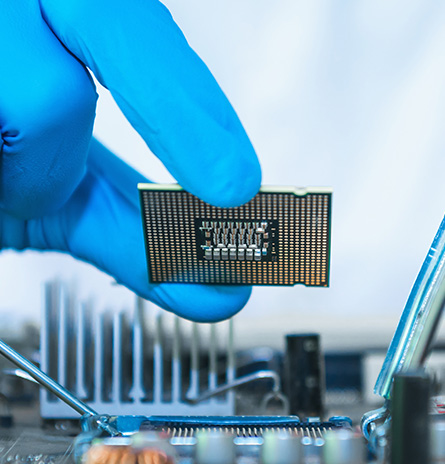5G Network
5G Network devices can use FTDI chips for configuration, debugging or interfacing with other hardware components. During the manufacturing process of devices that incorporates 5G technology, FTDI chips can be used for configuration, testing and debugging purposes.
A 5G Beamformer is one typical example of utilizing FTDI technology to interface with other hardware components.
A 5G beamformer technology improves the efficiency and performance of data transmission. Beamforming is a signal processing technique that focuses radio frequency (RF) energy in a specific direction, creating a concentrated beam of wireless signals. This targeted approach enhances the reliability and speed of communication between the transmitter (such as a base station) and the receiver (such as a mobile device).
5G beamforming is achieved through the use of multiple antennas at both the transmitter and receiver ends. The beamformer adjusts the phase and amplitude of the signals sent or received by each antenna, directing the signal in a specific direction and minimizing interference from other directions. This targeted transmission helps overcome obstacles, reduce signal degradation and improve overall network performance.
5G beamforming plays a crucial role in optimizing the performance of 5G networks, contributing to the increased speed, reliability and efficiency of wireless communication.

FTDI’s FT232H, FT2232H and FT4232H allow for programming 5G beamformers which are interfaced as SPI slave devices. These FTDI device uses the MPSSE engine to configure them as an SPI master with the following maximum number of slaves:
FT232H => One MPSSE engine/SPI master, up to five SPI chip selects
FT2232H / FT4232H => Two MPSSE engines/SPI master, up to five SPI chip selects for each MPSSE interface, so maximum up to ten SPI chip selects
Selecting FT2232H would give a maximum of ten SPI chip selects to interface to 5G beamformers for programming/configuration.
FTDI FT2232H IC has the following key features making it an ideal candidate for this application:
-
- Entire USB protocol handled on the chip. No USB specific firmware programming required
- USB 2.0 High Speed (480Mbits/second) and Full Speed (12Mbits/second) compatible
- Dual Multi-Protocol Synchronous Serial Engine (MPSSE) to simplify synchronous serial protocol (USB to SPI) design
- FTDI’s royalty-free Virtual Com Port (VCP) and Direct (D2XX) drivers eliminate the requirement for USB driver development in most cases
- Highly integrated design includes +1.8V LDO regulator for VCORE, integrated POR function and on chip clock multiplier PLL (12MHz – 480MHz)
- Operational configuration mode and USB Description strings configurable in external EEPROM over the USB interface
- Configurable I/O drive strength (4,8,12 or 16mA) and slew rate
- Low operating and USB suspend current
- Supports bus powered, self-powered and high-power bus powered USB configurations
- UHCI/OHCI/EHCI host controller compatible
- USB Bulk data transfer mode (512byte packets in Hi-Speed mode)
- +1.8V (chip core) and +3.3V I/O interfacing (+5V Tolerant)
- Extended -40°C to 85°C industrial operating temperature range
- Compact 64-LD Lead Free LQFP/LQFN package and 56-LD VQFN packages
- +3.3V single supply operating voltage range
The Multi-Protocol Synchronous Serial Engine (MPSSE) can be configured and controlled by application software running on the PC. FTDI provides a library for this (LibMPSSE) or it can also be done using the D2xx drivers direct. See the following page for more information, https://ftdichip.com/software-examples/mpsse-projects/
The block diagram shows how FTDI’s FT2232H can be integrated into this typical application.

Multiple FT2232H ICs could be used by integrating a USB hub (Note FTDI do not manufacture USB Hub ICs).
There are many 5G beamformer ICs available on the market from the likes of Analog Devices, NXP, TI and other IC manufacturers who specialise in this technology.
Recommended ICs:







